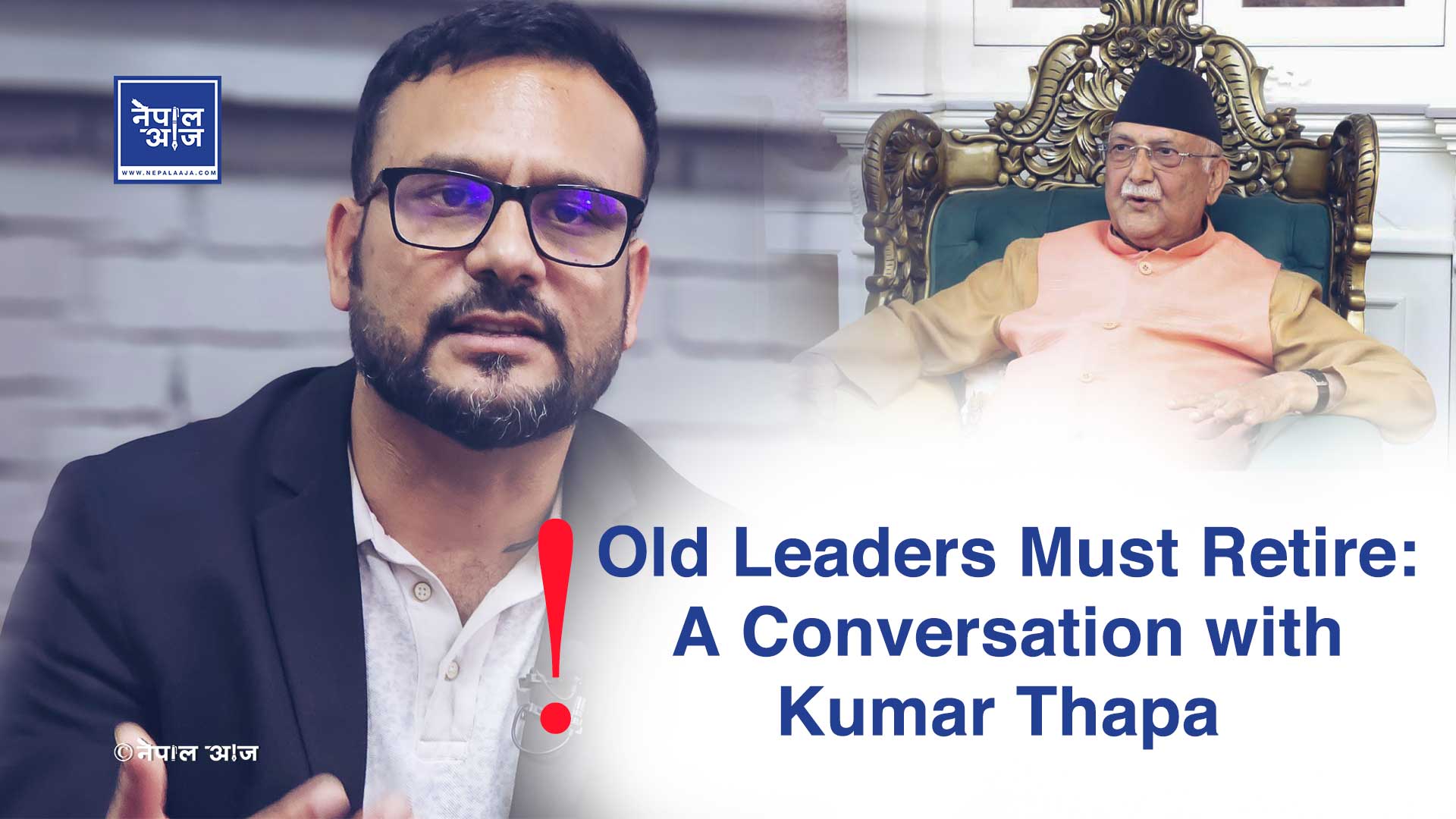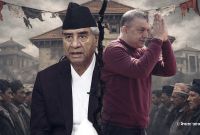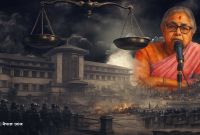People will topple leaders clinging to power—Nepal’s Gen Z births new order

Kumar Thapa
“Those who cling to power will be toppled by the people, just as Gaddafi was. Nepal’s Gen Z movement is now giving birth to a new political order.” This is the stark warning from Nepali commentator Kumar Thapa, who believes the country’s political transition is at a historic crossroads.
Thapa invokes the downfall of Libya’s Muammar Gaddafi to illustrate his point: when autocrats refuse to relinquish power, popular fury eventually erupts in violent, unpredictable ways. In Nepal, he sees troubling signs of the same obstinacy—aging leaders holding onto their “royal-style thrones” rather than preparing for democratic succession. He points to a recent meeting chaired by former Prime Minister KP Sharma Oli, seated conspicuously on an ornate, elevated chair, as a symbol of Nepal’s leadership clinging to monarchical airs.
According to Thapa, Nepal’s transitional phase has been prolonged by political maneuvering. Leaders, he argues, are more concerned with preserving their grip than with building institutions. Yet he acknowledges that the new government under Prime Minister Sushila Karki has not been rejected either domestically or internationally—an achievement in itself. The danger, however, is that without a clear roadmap, public frustration may once again explode into the streets.
Thapa describes the recent Gen Z protests as a watershed moment. What began as a peaceful, disciplined march in Kathmandu swiftly escalated into a movement that overturned the political order in a single day, stunning not just Nepal but the world. Still, he laments that the government born from this upheaval has yet to articulate a coherent program. Had leaders agreed on even a minimal framework addressing corruption, executive structure, secular versus Hindu state debate, and the role of unions, the uprising could have produced a durable roadmap.
For Thapa, the crisis is not only political but institutional. He notes that fires and destruction during the protests gutted Singh Durbar, the Supreme Court, and other government offices—not merely buildings, but the systems within them. Restoring these institutions requires more than bricks and mortar; it demands rebuilding processes, accountability, and public trust. Elections alone, he warns, cannot be treated as an achievement unless governance is fundamentally reformed.
He is equally scathing about the lack of internal democracy within Nepal’s political parties. “How can leaders who fail to run their own parties democratically claim they can lead a democratic nation?” he asks. This disillusionment, he argues, is fueling the generational demand for new leadership—not only from Gen Z but also from the emerging Gen Alpha.
Thapa insists that the old guard must step aside with dignity. “It is time for them to rest and open the path for a new generation,” he says. If they persist with political trickery, the outcome, he warns, could be catastrophic.
For citizens, he sees hope in dialogue. Democracy, in his view, is not just casting ballots but sustaining continuous debate. Sectors like education, health, transportation, and communications must be part of structured civic discussions. Only then can the energy of protest translate into institutional reform.
His closing message is blunt: “No one will come with magical solutions. Now is the time to forge a shared blueprint through dialogue, to retire the old leaders with respect, and to entrust responsibility to the next generation. Otherwise, the people may, at any time, repeat the lesson of Gaddafi.”




![From Kathmandu to the World: How Excel Students Are Winning Big [Admission Open]](https://nepalaaja.com/img/70194/medium/excel-college-info-eng-nep-2342.jpg)
